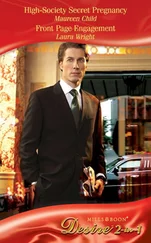They rolled on through Brighton’s breezy, straight and safe-looking streets, lamp posts spaced out and rooflines designed to rhyme. Girls in white denim walking, ponytails flicking. Women in smart dark jackets, narrow at the waist and wide at the shoulders. Crazy baggy T-shirts giving gangly kids space to hide. The summer not yet over. That special summer hum. The Prime Minister was coming to stay in a few weeks’ time. He knew her visit was a route to promotion. To future GM opportunities in Oxford or Bristol or Durham, wherever Freya ended up studying. Money, too. His current £14,000 a year didn’t go that far. He needed to provide and provide. He’d earn more as a doorman or a bellman — those guys built houses out of one-pound coins — but if you were a doorman or a bellman you were a doorman or a bellman for life, addicted to tips and shorn of the chance to advance; he’d seen it happen many times. A salaried position had a future. That was the idea, anyway.
Left onto the King’s Road, a modest milk float trundling past them. On his right, the vast glittering sweep of the sea. Late-season holidaymakers, towels slung over their shoulders, crossed the street to reach a warm swerve of shore. Grey stones and beige stones, some slick and some dry. The British approach to sunburn was simple: get out there and upgrade yesterday’s patchy burns into something of more uniform severity. The recklessness of his own heat-seeking people made Moose oddly proud. Paint was peeling from the candyfloss huts, faded seaside glamour.
The Grand came into view, one of the loves of his life, a giant white wedding cake of a building facing out onto the English Channel. The wide eaves, the cornices, the elaborate brick enrichments. The Union Jack slapping high. He loved the twiddly little features and their special arcane names. One hundred and twenty years of stinging drizzle, of corrosive sunshine, of the salty gales and acidic bird shit it is every coastal town’s cross to bear.
What he loved most was walking into the Grand with his daughter at his side. Yes, I created this person, look. A tiny moment of ego in an industry that was all about accommodating others. His favourite doorman, George, waved as they got out of the car. George who always had an umbrella in his hand, forever expecting rain, and touched every bit of luggage the moment a car boot opened, for once your hand was on the handle a tip was almost certainly yours. Then Dave the Concierge with his wide friendly face and breath that always smelt of aniseed, a strategy to conceal his fondness for Scotch. He bowed for Freya in mock-theatrical style, a move that made her laugh each time. Derek the Bellman simply nodded. It was said that he had a picture of Bernard Sadow on his dartboard at home, the guy who’d invented the suitcase with wheels.
Within these Victorian walls, Moose’s style was excessive. The Grand was all about excess. He was living through excessive times. He didn’t have the money or inclination to wear expensive suits, to buy designer gel to sophisticate his salt-and-pepper hair, and although he had a head for maths he lacked the inner shard of ice that was probably required to make it rich in merchant banking. So instead he wore his navy-blue Burton suit — a suit for a man who was neither tall nor short, neither fat nor slim — and created little performances out of thin air, words and gestures that made his guests feel special, his name badge pinned close in on the lapel, his tie hanging over the nearest portion of his title, concealing the word DEPUTY, leaving only GENERAL MANAGER, a promotion without the salary or associated sense of pride. His stage was the lobby’s Persian rug. He liked the thick cream scrollwork of the ceiling, the gleams in the bends of the luggage trolley, the decorative panels that made him think of Malted Milk biscuits, the soft wattage of elegant lamps. He liked the Merlot-coloured curtains keeping the parlour rooms calm. The heart of house was dingy corridors and piles of dirty laundry, but the front of house, the areas guests saw once they had passed through the glittering wings of the revolving door, was full of the warmth of opulence, the mellowing air of antiquity, the fragrance of fresh flowers. First thing you felt coming in — the door’s revolutions slowing — was the hush of wise furniture inside. Duet stools and wing-arm chairs. The Gainsborough nestled under the first dramatic arc of staircase. It was upholstered in Colefax & Fowler Oban Plaid.
‘Mr Barley, how’s that nephew the newscaster doing? Lovely profile in the Argus .’
‘How was that champagne, Mrs Harding? Did it live up to the no-hangover guarantee?’
‘I’ll get that console table replaced, Mrs Mathis. A woman of your stature should not have to stoop.’
‘A sea-view suite?’
‘Some aspirin?’
‘A doctor?’
‘A florist?’
Smell of fresh coffee in the morning. Tea and cakes come afternoon. Toothbrush sets behind the desk. Hundreds upon hundreds of condoms. Knot cufflinks by the dozen. People were very regular in what they overlooked, and also in what they left behind: pyjamas, handcuffs, once a prosthetic leg. Moose was a secular man. He would have liked to remove the Bibles from the rooms, or else to add copies of the Koran, but they were hugely popular among the summer staff — the thin pages were apparently handy for rolling joints — and if a thing made you feel better, and you practised it discreetly, who really had a right to object?
On days when ambition and regret got the better of him, when lost opportunities stuck to his shoes like bubble gum gone to ground and created ugly slouching strings that halted progress, he told himself that all human life was here. Yes, the affairs. The stuff everyone always asks you about. Definitely those things. But people also got engaged and married here. They received phone calls telling them their parents had died. They conceived children. They blew out candles.
He was happiest of all when talking to guests. If it wasn’t for the editorial influence of deadlines and to-do lists, he could easily pass whole days discussing their get-richer ideas and much-mourned ailments, the Platonic ideal of a pillow, its consummate softness and girth. He liked to know every guest’s name and to slowly fill out the lives underneath. When regulars were the kind of people who enjoyed saying hello he tended also to know the names of their children. When they went about their days closely guarding their privacy he nodded and smiled, held a mirror up to their reticence. Hospitality involved an aspect of surface flattery but also of deep familiarity. It was a peculiar combination of density and gauze. You were reading people all the time, reading and reading and reading, and only occasionally was his apparent fondness for people false. The odd smile delivered to a slick pinstriped guy who was really no more than a slippery fish in the sea of his own possessions. The occasional compliment to a woman whose post-operative breasts were even more determinedly inauthentic than her eyes — eyes that were blank screens upon which brief impressions of felt experience flickered. In the main, people were kind if you were kind. They wanted to have a good time. You gave them the best and worst of yourself. The huge lie that you would escalate their complaint to Head Office. Telling the truth, almost always, when you wished them a very good stay.
Mrs Harrington from room 122 was doggedly crossing the lobby, swinging the walking stick she rarely seemed to need. Old Mrs H was one of the Grand’s most reliable regulars, and she only ever stayed in room numbers that added up to five. Many front-desk staff had learned her proclivities the hard way. ‘Room 240 is lovely, Mrs Harrington.’ ‘I’d prefer not to, dear.’ ‘Room 301, perhaps?’ ‘I’d prefer not to.’
Читать дальше












